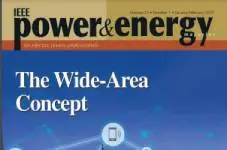GMDs and EMPs Effect on Power Grid Operations: New Technologies and Extreme Weather Events Uncertainty Quantification
Roland Brandis, Ramsis Girgis, Arturo Bretas, Bob Arritt, Jonathan Snodgrass, Matt Caher
-
Members: FreePES
IEEE Members: $25.00
Non-members: $40.00Pages/Slides: 35
Panel
12 Sep 2024
The power grid is one of our most critical infrastructures and it is now widely recognizing that Geomagnetic Disturbances (GMDs) and high-altitude electromagnetic pulses (HEMPs) have the potential to severely disrupt the operation of the electric grid. While these two event types are certainly different, both can impact the electric grid in a similar manner. GMD causes relatively low-frequency changes in the earth’s magnetic field. Interaction of a changing magnetic field with the deep earth conductivity induces an electric field at the earth’s surface, which in turn causes quasi-direct current (DC), known as GICs, to flow in long conductors with earth connections, such as the power grid. The impact of a HEMP attack, specifically the E3 component, creates a similar induced current. These can have adverse effects on major power system components, especially transformers. The analysis and simulation of GMDs as they relate to the reliable operation of the high voltage transmission and distribution systems is not a mature area in power system engineering. Interest and efforts in this area have grown significantly in the past few years, in part, as a response to the implementation of NERC GMD reliability standards in North America. In this session, current challenges and experience on systems operations considering extreme weather events and new technologies will be presented by different stakeholders of the industry, including Utilities, National Laboratories, Manufactures, and Academia. Review of the latest developments and ongoing research on tools and simulation techniques related to the analysis and simulation of GMDs and HEMPs will be introduced. Operation considering new technologies under extreme weather events through uncertainty quantification will be revised and ongoing challenges and efforts discussed.
Chairs:
Bob Arritt, Matt Caher
Primary Committee:
(AMPS) Transient Analysis and Simulation



